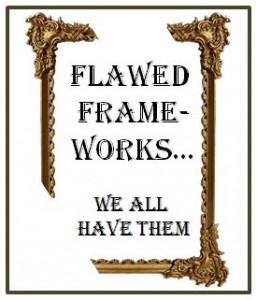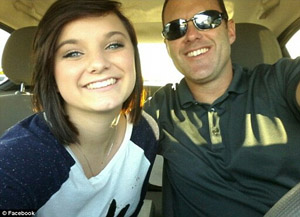 Searching for inspiration for this post, I stumbled across some pretty unattractive, “victim blaming” directed to someone who had been involved in a relationship with a person who is likely a sociopath.
Searching for inspiration for this post, I stumbled across some pretty unattractive, “victim blaming” directed to someone who had been involved in a relationship with a person who is likely a sociopath.
Victim Blaming
I find victim blaming unattractive for humanitarian and moral reasons, but I also find a deep irony in victim blaming—that the person accusing others of naivety and a lack of insight about human behavior, is in fact, themselves, displaying profound naivety and a lack of insight about human behavior. It’s as if they are assuming that all people have the same experiences and opportunities, hence if someone is deceived by a sociopath, it can only be due to that person’s inherent weak character, poor choices or some other negative characteristics. The victim blamer often uses the fact they were not deceived by a sociopath as evidence of their inherently superior character and decision making.
Wait”¦wait”¦wait!
Luck and Randomness
In the book Fooled by Randomness, Nassim Nicholas Taleb, a professional trader and mathematics professor, discusses how life comprises a huge element of serendipity and randomness, but that humans are inclined to misattribute dumb luck to well-honed skill and competence (is that person befriending you a potential life-long friend, mentor, business colleague, etc. or a sociopath setting you up for exploitation”¦some of this is luck).
Sometimes in life, a friend knows someone who opens the door for an amazing career opportunity, forever altering your future for the better. (This is one of the principals of chaos theory and something also noted in the above book, that small events can have huge long-term consequences.) Perhaps, you have a teacher who sacrifices his or her time to stay after class to explain math concepts with which you are struggling. As a result, you continue with your math studies and build a rewarding career as an engineer. Perhaps you have a coach who mentors you, to help you believe in yourself in a way you never did before, offering guidance and encouragement where your parents could not.
Our lives can be forever changed by chance.
The Good Guys And The Bad Guys Look Identical at First
But, what if that person whom we think will forever change our career path (for the better) is Bill Cosby? What if that teacher who volunteers to stay after class to help you with math is the man about whom Donna recently wrote — Matthew Shane Wester, who was indicted for having sexual contact with a student?
What if you can’t tell who is who and which is which? And, you know what? You often can’t. Experts who study such topics conclude that people have incredibly imperfect perception and have almost no reliable ability to detect lies—not any better than chance anyway. Those interested in our ability to detect deception may be enjoy the book Liespotting: Proven Techniques to Detect Deception by Pamela Meyer. Part of the summary on Amazon reads, “people–friends, family members, work colleagues, salespeople–lie to us all the time. Daily, hourly, constantly. None of us is immune, and all of us are victims. According to studies by several different researchers, most of us encounter nearly 200 lies a day.” I’m guessing those “victim blamers” would do no better than the victims they disparage at detecting those 200 daily lies.
Perceptions are Sticky—For Victims and Victim Blamers Alike
Experts will further tell you that once perceptions are established, they are “sticky” and that it takes a lot of discrepant information, time, and a bit of rare alignment of the plants (figuratively speaking) to discredit and discard an existing framework, replacing it with one that better fits all available data. (Hence, it takes a long time to recognize a sociopathic relationship for what it is; just as it will take “victim-blamers” a long time to discard their nonfact-based perceptions that allow them to feel justified blaming victims.)
Even entire scientific communities of the best and brightest minds work like this. The Structure of Scientific Revolutions written by Thomas Kuhn decades ago addresses this. Given the timelessness of its message, it is still a top-selling book. Human beings simply operate like this, creating frameworks, filtering out information that does not fit that framework, and allowing in or distorting information so it is consistent with our existing framework. It doesn’t make us dumb, naive, or gullible; it is part of being human. Is this an active, purposeful, conscious process? Not most of the time. Most of the time our brains are just doing this without us being aware that this automatic, biased mental processing is ubiquitous in ourselves and others.
Self-Serving Bias
Many introductory psychology text books discuss a self-serving bias in which people tend to attribute good outcomes in their lives to their inherent goodness, intelligence, hard work, skill, etc. While they often attribute bad outcomes in their own life to unfavorable circumstances—a boss who plays favorites, an unfair referee, age discrimination, a broken traffic light, etc. Yet, we tend not to give others, (especially others we don’t know well or with whom we have little emotional connection) the same “benefit of the doubt.” To the contrary, we often attribute bad things that happen to other people to that person’s character, skill, etc.; not to the same extenuating circumstances that we call upon to protect our own egos. Quite the double standard so many of us humans have without even knowing we have it. Ouch!
Snake Bites And Sociopaths
If two people wore the same clothes, hiked the same trail on the same day and one got bitten by a venomous snake and one did not and instead had a beautiful hike; would the person who was not bitten by the snake feel justified in blaming the snakebite victim for his or her poor choices that resulted in the snake bite? I hardly think so. Victim blaming someone who got deceived by an accomplished, skilled fraudster doesn’t really make any more sense, yet so many feel justified in doing so. Yet, just as the snake is a snake and will do what a snake does when someone accidentally gets too close, a sociopath is a sociopath and will do what a sociopaths does when someone unwittingly ventures too close—try to exploit them.
Sociopaths are very good at what they do, and people are notoriously poor at detecting them. Yet, blaming such a victim allows some to feel superior, fueling their self-esteem and providing comforting, albeit false, reassurance that “it could never happen to them.”
Distorted, Biased Perceptions are Ubiquitous
One can only hope that some of the victim blamers will one day realize that “victim blaming” is not based on fact, rational analysis, or accepted psychological principals. In fact, “victim blaming” reflects human biases and distorted, sticky human perceptions and information processing. Ironically, among the reasons it is so hard to disentangle oneself from a relationship with a sociopath also involves natural human biases and distorted, sticky human perceptions and information processing.
Ironic, don’t you think?
Notes
My own cautionary tale of unwittingly investing almost twenty years of my life into a relationship with a sociopath and sometimes diverting from the best path, is chronicled in my book Husband, Liar, Sociopath: How He Lied, Why I Fell For It & The Painful Lessons Learned (available via Amazon.com, just click on title above). As I don’t get a “do over,” hopefully some of my painful lessons can help others impacted by these toxic people.
Identifying names, places, events, characteristics, etc. that I discuss here and in my book have been altered to protect the identity of everyone involved.




































 Prosecutor says teacher accused of sexual contact with his student married her so she won’t testify
Prosecutor says teacher accused of sexual contact with his student married her so she won’t testify
Donna Andersen
O.N. Ward – such good observations. To verify one of your points, research indicates that human beings can spot lies only 53% of the time – not much better than flipping a coin.
The bottom line is that sociopaths use our humanity against us. So those of us who have been snagged, well, that just proves that we’re human.
AnnettePK
Excellent post, thank you ONWard. I relate to the points you make, as I was, somewhat subconsciously I guess, a victim blamer before my own psychopath experience. Although I was on one level compassionate to victims, in the back of my mind I believed it “could never happen to me.” Why? I never thought it through, but on some even deeper level I probably thought I was too smart, too streetwise, too educated, etc. I assumed my successes were due to my own abilities and choices, again without really connecting to this belief.
Being victimized by my ex psychopath and responding with all kinds of behaviors and choices I had criticized in others, humbled me. I now have more real compassion of victims; and also I tend to cut many victim blamers some slack as I was there at one time. I keep in mind that their eyes may be opened if they find themselves victimized in some way.
Understanding the truth that all of us are subject to time and chance, and that our successes and failures are due to a balance of randomness and one’s responses and choices. And allows one to feel gratitude within one’s theological paradigm (to God, a Higher Power, the Universe). Gratitude is mostly absent when one believes everything is under one’s control.
Sparrow
An excellent article, and reassuring as “victim blame” is so common–and so frustrating! In my experience, I had to practice no-contact with people who remained in contact with my ex, as they seemed invested in believing that he was NOT suffering from borderline personality disorder, but that I was to blame for not “making enough effort.” But, they provided him with ongoing information about me, so I quickly and efficiently eradicated an extra 5 people from my life. Not ideal, but necessary.
And more than two people have said, “you attracted the crazy, and something in you liked it, it must you that is crazy!”–but my therapist told me that, similar to what Donna stated, my groundedness and compassion attracts unstable people who lack groundedness themselves–that’s fairly natural, we seek out what we wish we had, or what balances us; the trouble is that disordered, destructive personalities eventually seek to destroy the thing they are drawn to, out of jealousy and desire to for power over another…and that includes power of their victim’s friends, family, anyone who could crumble the victim’s support structure.
Thanks for the article !
Sunnygal
I talked to one of these today.